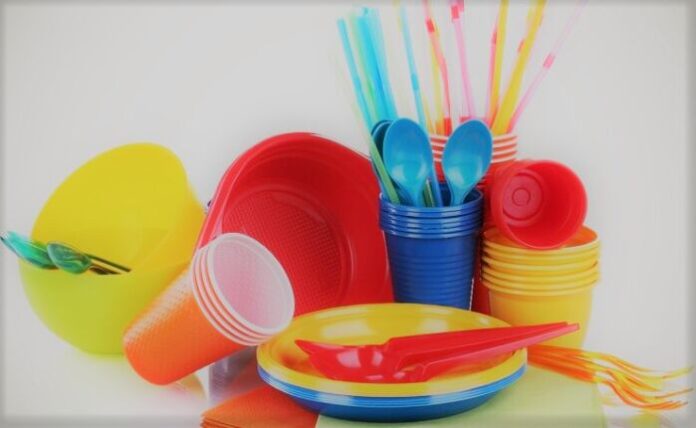
After Europe has decided to ban, by 2021, the use of various single-use plastic products, such as plates, cutlery and straws, Italy could be the first country to implement the European directive on the prohibition of “throwaway” and to extend it also to glasses and balloons.
The measures of Europe and Italy represent a concrete and real commitment to minimize the consumption of single-use plastics and the number of waste that populate seas and oceans. A strong signal to face the problem related to plastic which represents one of the main present and future challenges of modern society.
In fact, plastic is a highly polluting material at every stage of its life cycle. From the extraction of fossil fuels, to manufacturing processes (with the production of plastic additives) and use by consumers (very often incorrect), up to waste management technologies that involve the release of toxic material into the environment.
For this reason it is necessary to encourage the recycling of plastic materials, and, above all, interventions capable of limiting the use of single-use plastic products, favoring the birth of a “plastic free” future.
The data of plastic recycling in Italy
To limit the environmental impact of plastics it is necessary to increase national and European recycling rates.
As we learn from the “L’Italia del Riciclo 2019” report, edited by “Fise Unicircular” and “Fondazione per lo Sviluppo Sostenibile”, an important improvement in the data relating to plastic recycling in our country is evident.
As can be seen from the document, in fact, “packaging recycling has increased from 701 kt in 2009 to 1,020 kt in 2018, with an increase of 319 kt equal to 45%. On the total of plastic packaging released for consumption, the percentage of those sent for recycling has increased from 33 to 45%, against a European target of 50% by 2025 and 55% by 2030. At the European level, the recycling rate of plastic packaging compared to released for consumption went from 32% in 2009 to 42% in 2017 (last year available): Italy, compared to the main European economies, is in third place, after Germany and Spain both at 48%. In the ten years analyzed, the recycling of plastic packaging has increased considerably but, to achieve the new European objectives, it is important to overcome the technical and economic obstacles which, to date, don’t allow the recycling of some types of polymers such as mixed plastics. It is therefore necessary to invest in research and innovation, key elements for the transition to the circular economy of the plastics sector.”
From the data of the report it emerges that plastic recycling is an essential tool but not sufficient to limit its environmental impacts, due to the difficulty of the recycling processes of some products.
For this reason, the European directive which bans the use of single-use plastic products (cutlery, plates, straws) from 2021 and the consequent commitment of Italy to implement the directive itself, prohibiting two other products more than in Europe (glasses and balloons), represent strong signals to limit the phenomenon of plastic waste in the world.
The commitment of Europe and Italy for a plastic free future
The European directive, which aims to ban, by 2021, the use of various single-use plastic products, such as plates, cutlery and straws, is more necessary than ever to limit the consumption of “throwaway” products.
In this regard, Italy could enjoy a “green” record. Our country, in fact, could be the first in the EU to implement the European directive on the prohibition of “throwaway”.
As underlined by the Minister of the Environment Sergio Costa, “thanks to the great work that Parliament is doing, Italy is the only country to implement the European directive on the ban on disposable use, extending it to glasses and balloons.
This norm, which thanks to the work of Barbara Floridia, Pietro Lorefice, to the whole environment commission and the European Senate commission, has been approved, now goes to the Chamber for approval in the European delegation law.
Disposable plastic is a problem and must be faced in a drastic and decisive way. Between 6 and 7 billion disposable plastic cups are used in one year alone in Italy, and represent 20% of marine litter worldwide. Balloons are one of the biggest dangers to seals, turtles and seabirds. This is why it is important and urgent to reduce the use and throwaway. Only by intervening in our daily lives we have the possibility to defend the planet, because we only have this and we must protect it.
There are alternatives, let’s use them.”
Therefore, in the event of final approval, Italy could be at the forefront than other European Union countries.
The measures of Italy and Europe and the encouraging data of plastic recycling allow us to hope for a “plastic free” future, which no longer appears a utopia, but a concrete and real possibility.



































